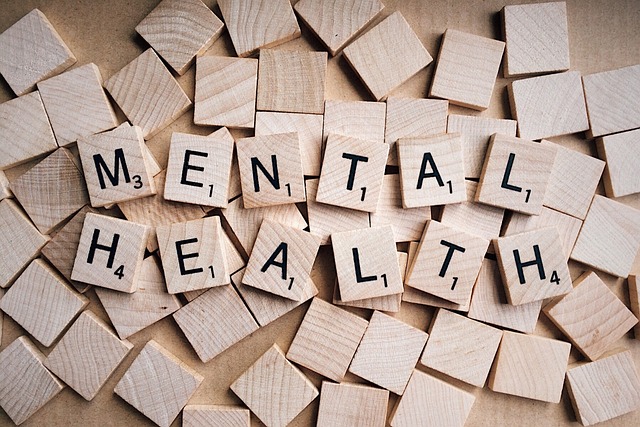Exploring Trauma Theory: Unraveling the Human Psyche
Welcome to a journey into the intricate depths of trauma theory, where we delve into the intricacies of the human psyche. Exploring Trauma Theory: Unraveling the Human Psyche invites you to unlock the secrets that shape our understanding of trauma and its profound impact on personal experiences. Through the lens of this theory, we'll unravel the complexities that lie within, shedding light on the ways trauma shapes our thoughts, emotions, and behaviors. Brace yourself for a thought-provoking exploration that will challenge your perceptions and expand your understanding of the human condition.
How does trauma affect the psyche? The impact of trauma on the human mind.
How does trauma affect the psyche? The impact of trauma on the human mind.
When it comes to understanding the effects of trauma on the human psyche, it is essential to delve into the intricate connections between traumatic experiences and their lasting impact. Trauma is an incredibly distressing event that overwhelms an individual's ability to cope, often leaving deep emotional wounds that can linger for years, or even a lifetime.
One of the primary ways trauma affects the psyche is by disrupting the person's sense of safety and security. Traumatic experiences can shatter the illusion of a predictable and benevolent world, leading to a profound sense of vulnerability and mistrust. This upheaval can manifest in various forms, such as heightened anxiety, hypervigilance, and a constant feeling of being on edge.
The emotional repercussions of trauma are equally significant, often leading to a myriad of psychological symptoms. Individuals who have experienced trauma may struggle with intense feelings of guilt, shame, and self-blame. They might develop a persistent sense of worthlessness or a distorted self-image. Trauma can also impact one's ability to regulate emotions, leading to frequent outbursts of anger, depression, or a general numbing of emotions.
Furthermore, trauma has a profound impact on cognition and memory processes. Many trauma survivors experience difficulties with concentration, memory recall, and overall cognitive functioning. These impairments can profoundly affect daily life, making it challenging to perform tasks, engage in meaningful relationships, or even remember significant aspects of the traumatic event itself.
Another critical aspect of trauma's impact on the psyche is the development of coping mechanisms. In an attempt to navigate the overwhelming emotions and distress caused by trauma, individuals often develop various coping mechanisms. These can range from healthy strategies such as seeking therapy or engaging in self-care, to maladaptive behaviors like substance abuse or self-harm. Coping mechanisms are a direct response to trauma and play a crucial role in managing the overwhelming effects it has on the psyche.
It is important to recognize that the impact of trauma on the psyche is not static. While trauma can have long-lasting effects, individuals are also capable of resilience and healing. With proper support, therapy, and a conducive environment, individuals can learn to process and integrate their traumatic experiences, gradually reclaiming their sense of safety, self-worth, and emotional well-being.
What are the theories of trauma theory? Unveiling the concepts behind trauma.
Theories of Trauma Theory: Unveiling the Concepts behind Trauma
Trauma theory is a field of study that focuses on understanding the psychological and emotional effects of traumatic experiences on individuals. It delves into the various theories that explain the complex nature of trauma and its impact on the human psyche. By unraveling these concepts, we can gain a deeper understanding of how trauma affects individuals and how to provide effective support and treatment.
The Theory of Post-Traumatic Stress Disorder (PTSD)
One prominent theory within trauma theory is the concept of Post-Traumatic Stress Disorder (PTSD). This theory suggests that individuals who have experienced a traumatic event may develop a set of symptoms that persist long after the event has occurred. These symptoms may include intrusive thoughts, nightmares, flashbacks, and heightened anxiety. The theory of PTSD helps us understand the long-term effects of trauma on an individual's mental and emotional well-being.
The Theory of Dissociation
Another theory within trauma theory is the theory of dissociation. This theory suggests that individuals who have experienced trauma may have difficulty integrating their traumatic experiences into their conscious awareness. As a result, they may dissociate or detach from the memories, emotions, or sensations associated with the traumatic event. This theory helps explain why some individuals may have fragmented memories or a sense of detachment from their traumatic experiences.
The Theory of Neurobiology
The theory of neurobiology explores the physiological changes that occur in the brain as a result of trauma. It suggests that traumatic experiences can alter the structure and functioning of the brain, particularly regions involved in regulating emotions and stress responses. This theory helps us understand the physical impact of trauma on the brain and how it can contribute to the development of psychological symptoms.
The Theory of Social Support
The theory of social support emphasizes the importance of relationships and social connections in mitigating the negative effects of trauma. It suggests that individuals who have a strong support network are better equipped to cope with and recover from traumatic experiences. This theory highlights the role of friends, family, and community in providing emotional support and resources for individuals who have experienced trauma.
How do you reset your brain after trauma? Discover effective techniques.
How do you reset your brain after trauma? Discover effective techniques.
Experiencing trauma can leave deep emotional scars and have a lasting impact on one's mental well-being. It is crucial to find ways to reset and restore the brain after such distressing events.

Fortunately, there are several effective techniques that can help individuals heal and regain a sense of control over their lives.
1. Seek Professional Help
One of the first steps towards resetting the brain after trauma is to seek professional help. Consulting with a qualified therapist or counselor who specializes in trauma can provide invaluable support. These experts possess the knowledge and tools to guide individuals through the healing process, helping them navigate their emotions and find healthy coping mechanisms.
2. Practice Mindfulness
Mindfulness techniques can be incredibly powerful in resetting the brain and promoting emotional well-being. By cultivating a moment-to-moment awareness of one's thoughts, feelings, and sensations, individuals can develop a sense of groundedness and clarity. Techniques such as meditation, deep breathing exercises, and yoga can help calm the mind, reduce anxiety, and promote self-awareness.
3. Engage in Physical Activity
Physical activity not only benefits the body but also plays a vital role in resetting the brain after trauma. Engaging in regular exercise releases endorphins, which are natural mood boosters. Whether it's going for a run, practicing a sport, or simply taking a walk in nature, physical activity can help reduce stress levels, improve sleep quality, and enhance overall well-being.
4. Establish a Support Network
Building a strong support network is essential for resetting the brain after trauma. Surrounding oneself with positive and understanding individuals can provide a sense of belonging and help alleviate feelings of isolation. Connecting with friends, family, or support groups who have experienced similar challenges can offer a safe space for sharing experiences, seeking advice, and receiving encouragement.
5. Engage in Creative Outlets
Expressing oneself through creative outlets can be therapeutic and aid in resetting the brain. Activities such as painting, writing, playing music, or dancing can serve as cathartic releases for pent-up emotions. Engaging in these artistic endeavors allows individuals to process their trauma in a constructive and expressive manner, promoting healing and personal growth.
How do you unravel trauma? Discover the path to healing and resilience.
How do you unravel trauma? Discover the path to healing and resilience.
Understanding Trauma
Trauma is an intricate web that can enshroud an individual's mind and body, leaving lasting effects on their well-being. It can be caused by various distressing experiences such as abuse, accidents, or the loss of a loved one. Unraveling trauma requires a deep understanding of its complex nature and a commitment to embarking on a journey of healing and resilience.
The Impact of Trauma
Trauma can manifest in numerous ways, both physically and emotionally. It may lead to symptoms such as anxiety, depression, dissociation, or even physical ailments. The effects of trauma can disrupt an individual's ability to function in daily life, affecting their relationships, work, and overall sense of well-being.
The Unraveling Process
Unraveling trauma is a delicate and individualized process, as each person's experience is unique. It requires a multifaceted approach that addresses the various layers of trauma. This may involve therapy with a qualified professional, support from trusted friends and family, and self-reflection through practices such as journaling or meditation.
Therapeutic Techniques
Therapeutic techniques can play a vital role in unraveling trauma. Approaches such as Cognitive Behavioral Therapy (CBT), Eye Movement Desensitization and Reprocessing (EMDR), or somatic experiencing can help individuals process and release traumatic memories and emotions. These techniques provide a safe space for individuals to explore their trauma, develop coping strategies, and ultimately move towards healing and resilience.
Building Resilience
Building resilience is an essential part of the journey to healing from trauma. It involves cultivating inner strength, developing healthy coping mechanisms, and fostering a supportive network. Resilience allows individuals to bounce back from setbacks, adapt to challenges, and reclaim their sense of agency over their own lives.
Frequently Asked Questions (FAQ)
What is "Exploring Trauma Theory: Unraveling the Human Psyche"?
"Exploring Trauma Theory: Unraveling the Human Psyche" is an insightful and thought-provoking book that delves into the intricate field of trauma theory. It offers a comprehensive exploration of how trauma affects the human psyche and provides valuable insights into understanding its complexities.
Who is the target audience for this book?
This book is designed for individuals who have an interest in psychology, trauma, and the human mind. It is suitable for both students and professionals in the field, as well as anyone who seeks to gain a deeper understanding of trauma theory and its impact on the human psyche.
What can I expect to learn from "Exploring Trauma Theory: Unraveling the Human Psyche"?
In this book, you can expect to learn about the various theoretical frameworks that underpin trauma theory, including the works of renowned psychologists and theorists. It explores the different types of trauma, their effects on individuals, and provides insights into the mechanisms of trauma and post-traumatic stress disorder (PTSD). Moreover, the book offers practical strategies and approaches to help individuals overcome trauma and promote resilience.
Is this book suitable for beginners in the field of psychology?
Absolutely! "Exploring Trauma Theory: Unraveling the Human Psyche" is written in a clear and accessible manner, making it suitable for beginners in the field of psychology. The concepts are explained in a way that ensures understanding without compromising the depth of the subject matter. Whether you're just starting your journey in psychology or have a basic understanding, this book will be a valuable resource for expanding your knowledge of trauma theory.
If you want to know other articles similar to Exploring Trauma Theory: Unraveling the Human Psyche you can visit the category Psychology.





Related posts